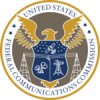Public Notice

FCC Adds Three Items to Jan 13 Meeting Agenda
In addition to five panels summarizing the work of the Federal Communications Commission over the past four years, the commission will consider the following --

FCC Seeks Input on Next Round of COVID-19 Telehealth Program
The Federal Communications Commission’s Wireline Competition Bureau issued a request for comment on how to administer Round 2 of the agency’s COVID-19 Telehealth Program, which received an additional $249.95 million in support as part of the Consolidated Appropriations Act, 2021.

FCC Seeks Public Input On New $3.2 Billion Emergency Broadband Benefit Program
On December 27, 2020, President Donald Trump signed the Consolidated Appropriations Act, 2021 (Consolidated Appropriations Act or Act). Section 904 of Division N – Additional Coronavirus Response and Relief, Title IX – Broadband Internet Access Service, in the Consolidated Appropriations Act establishes an Emergency Broadband Connectivity Fund of $3.2 billion and directs the Federal Communications Commission to use that fund to establish an Emergency Broadband Benefit Program, under which eligible households may receive a discount off the cost of broadband service and certain connected devi

FCC Names 3 Members to Federal-State Joint Board on Universal Service
The Federal Communications Commission appoints the Honorable Michael A. Caron, Commissioner, Connecticut Public Utilities Regulatory Authority; the Honorable Karen Charles Peterson, Commissioner, Massachusetts Department of Telecommunications and Cable; and the Honorable Brandon Presley, Commissioner, Mississippi Public Service Commission, to serve on the Federal-State Joint Board on Universal Service. These appointments fill the positions held by the Honorable Stephen Michael Bloom, Commissioner, Oregon Public Utility Commission; the Honorable Sally A.
D.C. Circuit Denies Petition for Review of Lifeline Order
The National Lifeline Association challenged the Federal Communications Commission's November 2019 Lifeline order which restored the role of states in designating eligible telecommunications carriers (ETCs) to participate in the Lifeline program, clarified the obligations of participating carriers, and took steps to improve compliance by Lifeline ETCs and reduce waste, fraud, and abuse in the program. The issue in this case concerns support payments to ETCs for prepaid Lifeline subscribers in cure periods because of their non-usage of the service.

Lifeline Program Data Collection
The Federal Communications Commission is directing a group of mobile service providers to respond to a questionnaire about customer usage and costs. The responses of this group, encompassing a significant portion of the Lifeline marketplace by subscribership, will aid the development of the State of the Lifeline Marketplace Report. The FCC also expects this data to inform the policy choices before the FCC regarding the mobile broadband minimum service standards—standards established in 2016 and annually updated.

FCC Settles with IBM in NYC and El Paso E-Rate Program Investigations
The Federal Communications Commission announced a settlement with IBM for alleged violations of the FCC’s E-Rate program rules in connection with the New York City and El Paso school districts. IBM agreed to return $24.25 million to the Universal Service Fund. In past years, IBM provided communications services to the New York City Department of Education and the El Paso Independent School District in Texas using E-Rate subsidies.

FCC Clarifies Connect America Fund Performance Measures
In 2018, the Federal Communications Commission's Wireline Competition Bureau, the Wireless Telecommunications Bureau, and the Office of Engineering and Technology (collectively, the Bureaus) adopted performance requirements establishing a uniform framework for measuring speed and latency performance for recipients of high-cost support to serve fixed locations. Later, the Bureaus addressed certain issues regarding testing to be conducted by high-latency bidders in the Connect America Fund (CAF) Phase II auction.

FCC Denies Permanent Waiver for WWOR/New York Post Combination, Instead Grants Temporary Waiver
The Federal Communications Commission's Media Bureau denied a permanent waiver request of the newspaper/broadcast cross-ownership rule sought by Fox Corp regarding the continued common ownership of WWOR-TV, Secaucus, New Jersey, and the New York Post. Instead, the Bureau granted a temporary waiver to preserve the status quo while the fate of the newspaper/broadcast cross-ownership rule is resolved. Absent a waiver, the current rule prohibits common ownership of a daily newspaper and a broadcast station serving the same geographic market, in this case, New York (NY).

FCC Waives Some Broadband Rate Reporting Requirements
By its own motion, the Federal Communications Commission waived its rules to allow rate-of-return carriers (i.e. a telephone company that provided local service prior to the Telecommunications Act of 1996 which owns most of the local loops and facilities in a serving area) to include their actual rates for consumer broadband-only lines for the first three months of 2019 on their FCC Form 509, rather than imputing revenues based on the maximum rate that would have been assessable.

